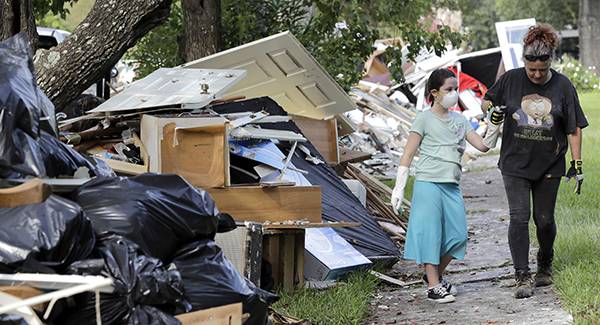You are here
You Can Improve Lives in Destructive Hurricane Season
As I write this post, Hurricane Irma has churned up the Florida coast and is entering the state of Georgia. The people of the Caribbean and the Southeastern United States will be relieved to see Irma leave. Of course, there are many short- and long-term health needs that will become more evident after Irma’s departure. With so many people and communities affected in the wake of this storm, the CDC Foundation has extended the support of our Emergency Response Fund to respond to all of the recent hurricanes, including Harvey and Irma.
Your support is urgently needed now to help extend the lifesaving work of the Centers for Disease Control and Prevention (CDC) and I urge you to join with us by providing a donation to support the CDC Foundation’s Emergency Response Fund. To date, CDC has identified a number of health priorities to address in the wake of recent hurricanes, including:
- Lifesaving water: Our neighbors in Texas need help in making sure their water is safe. Top priorities in Texas are private well and septic system assessments. These assessments fall through the cracks between jurisdictions, but are critically important. There are an estimated 90,000 private wells in the area affected by Hurricane Harvey, affecting a population of 378,000, including 5,000 wells needing immediate attention in areas that were submerged during the hurricane. With your support, the CDC Foundation will work to secure contractors to conduct these assessments.
- Facilities to deliver health services: To meet public health protection needs in many communities, there will be a need for semi-permanent modular health care facilities to function as temporary public health clinics in communities where the clinics have been damaged beyond repair. There also will potentially be a need to replace local health department buildings that are condemned as a result of damage, as well as equipment for these facilities.
- Mental health services for those impacted by the storms: Imagine the many stressful situations people will face after the storms recede. There will be a need for mental health services, such as patient information hotlines for evacuees and mental health services for evacuees and responders. There is also a need to develop and broadcast public service announcements addressing mental health issues and health education campaigns to identify risk factors associated with disaster mental health.
You may wonder, “Why would I want to support the work of a government agency?” The answer is simple and speaks to how together our impact is greater. While CDC has government funds for some of the response efforts, federal dollars, even during emergencies, are tied to restrictions and purchasing procedures that can limit CDC’s ability to act quickly. Your donation to the CDC Foundation can make an important, immediate difference for CDC and its partners who are working on the frontlines in the hurricanes’ aftermath. Your generosity will ultimately help to save and improve lives on the ground. Right now your support is critical to fill gaps and provide flexible, immediate resources to CDC experts in times of crisis. Nowhere is the power of collaboration more visible than when preparing for and responding to emergencies.
Together with you, we can pair private resources with the CDC Foundation’s speed and flexibility to jumpstart the work of CDC’s world-class scientists and responders. Our neighbors affected by these hurricanes need you—please give and make a lifesaving difference.

